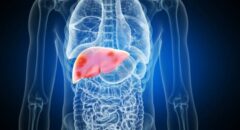
Our bodies are intricate and fascinating systems, each organ playing a crucial role in maintaining our overall health and well-being. One such unsung hero in our body is the liver – a remarkable organ with a multitude of functions that are essential for our survival. While you may know the liver plays a role in digestion, there’s so much more to discover about this amazing organ. Here are nine questions you should be able to answer about your liver:
1. What is the Liver’s Main Function?
The liver is a multitasking superstar with a primary role in detoxification. It helps remove toxins, drugs, and other harmful substances from your bloodstream, ensuring they don’t harm your body. Additionally, the liver aids in digestion, storing nutrients, and regulating blood sugar levels.
2. Where is the Liver Located?
The liver is situated in the upper right side of your abdomen, just below your diaphragm. It’s the largest internal organ in your body and is protected by your ribcage.
3. How Does the Liver Aid in Digestion?
The liver produces bile, a digestive juice that’s stored in the gallbladder. When you eat, the gallbladder releases bile into the small intestine, where it helps break down fats so they can be absorbed and used by the body.
4. What Role Does the Liver Play in Blood Health?
The liver contributes to blood health by producing important proteins that aid in clotting. These proteins prevent excessive bleeding and promote wound healing.
5. How Does the Liver Process Nutrients?
After you eat, the liver helps regulate the levels of glucose (sugar) in your bloodstream. It stores excess glucose as glycogen and releases it when your body needs energy. The liver also processes amino acids, the building blocks of proteins, and converts them into various compounds necessary for bodily functions.
6. Why is the Liver’s Detoxification Function So Important?
In our modern world, we’re exposed to numerous toxins from our environment and the foods we consume. The liver’s detoxification function helps prevent these harmful substances from building up in our bodies, safeguarding our health.
RELATED: 5 Ways You Can Help Your Liver Regenerate
7. Can the Liver Regenerate?
Yes, the liver is known for its remarkable regenerative ability. Even if part of the liver is damaged or removed, it can regrow to its original size within a matter of months. This unique capability has made liver transplants possible.
8. What Causes Liver Disease?
Liver diseases can be caused by various factors, including excessive alcohol consumption, viral infections (such as hepatitis), fatty liver disease, autoimmune disorders, and genetic conditions. It’s essential to maintain a healthy lifestyle to protect your liver from damage.
Fortunately, the liver is a resilient organ, so when spotted early, nonalcoholic fatty liver disease, hepatitis C, and genetic diseases (such as Wilson’s disease and hemochromatosis), generally have a good outcome. However, if left untreated, the liver can








